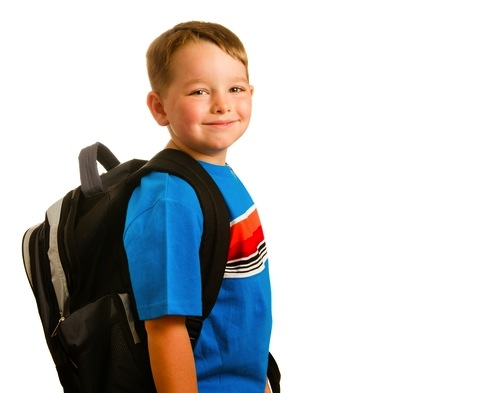Speaking Points for “Back to School Survival Guide”
Rick Henriksen, M.D., family practice physician
University of Utah Health Care, Madsen Clinic
School is now in full swing for Utah kids and success in the classroom this year can depend a lot on their health. Adequate sleep, a healthy lifestyle, and school sports safety are ingredients for a happy and productive school year.
Sleep
Sleep is essential to classroom performance. The amount of sleep kids need can be different for each individual child, but here are some general guidelines:
· 3-6 year olds 10-12 hours per day
· 7-12 year olds 10-11 hours per day
· 12-18 year olds 8-9 hours per day
Tips for Helping Your Child Develop Healthy Sleep Patterns:
· Maintain a routine
· Make sure your child’s room is conducive for sleep (quiet, minimal light)
· Don’t have TVs or games in the bedroom
· Keep a regular wake-up time
· Set limits
Activity and Healthy Lifestyle
The more active and healthy your child is, the more likely they are to do well in school.
· If possible, encourage kids to walk to school. Accompany small children and talk to kids about traffic safety and stranger danger. Your child should get a total of about 1 hour of activity each day.
· Limit screen time to 2 hours or less a day.
· Make sure kids start their day with a healthy breakfast.
· Include 5 or more servings of fruits and vegetables in your child’s diet each day. Include healthy snacks such as fruit and nuts in lunches and afterschool snacks.
Sports
Sports-related injuries can have an impact on school performance because of absence, or in the case of concussion, concentration and memory loss.
Tips about heat:
· Children and adults need to increase their fluid intake in warm weather and during athletic activity when they sweat more, especially when temps are above 90 degrees. The major cause of heat exhaustion is dehydration. Symptoms include fatigue, nausea, dizziness and muscle cramps.
· Once you show signs of thirst, you are already 3-8% dehydrated and your performance will be impaired.
· Drink often during exercise, at least every 15 minutes. Water should be the main source of hydration, but a sports drink can be helpful to replace lost electrolytes and glucose after exercise. Stay away from caffeine which can accelerate the effects of dehydration.
Tips about concussion:
There are some common physical, mental, and emotional symptoms a person may display following a concussion. Any of these could be a sign of traumatic brain injury:
· confusion or feeling dazed
· clumsiness
· slurred speech
· nausea or vomiting
· headache
· balance problems or dizziness
· blurred vision
· sensitivity to light
· sensitivity to noise
· sluggishness
· ringing in ears
· behavior or personality changes
· concentration difficulties
· memory loss
It is important to seek medical attention immediately when any of the above symptoms are exhibited.
To schedule an appointment with a University of Utah family practice physician, call 801-213-9500















Add comment